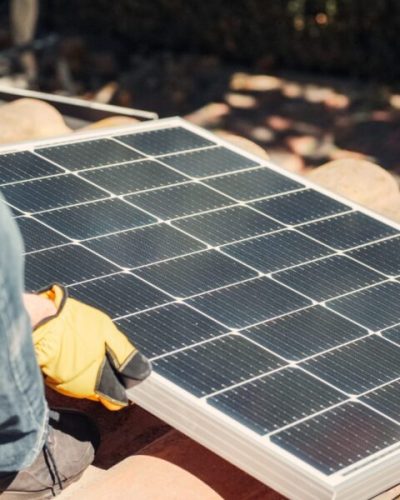Energy Sources
The world is moving towards clean and renewable energy sources, and solar power is one of the most popular among them.
Plethora
With the rising awareness of environmental sustainability and the increasing cost of traditional energy sources, homeowners are increasingly turning towards solar energy. However, with the plethora of options available in the market, it can be difficult to choose the right solar panel and roof system for your home. This article will provide a comprehensive guide to help you make an informed decision.
The information will help you determine the size of the solar panel system you need and how many panels you need to install.
Start by analyzing your energy consumption patterns and find out how much energy you use daily, weekly, and monthly.
Before investing in a solar panel and roof system, it's important to determine your energy needs. You can do this by studying your electricity bills or by using a smart meter.
Next Step
The next step is to evaluate your roof and its capacity to support a solar panel system. Your roof should be strong enough to support the weight of the panels, and it should also have enough space to accommodate the panels.

Monocrystalline
Once you have determined your energy needs and evaluated your roof, it’s time to choose the right solar panel. There are two main types of solar panels available in the market – monocrystalline and polycrystalline. Monocrystalline panels are more efficient, but they are also more expensive. Polycrystalline panels are less efficient, but they are more affordable. You should choose a solar panel that fits your budget and meets your energy needs.
Roof System
Your roof system is an important factor in the overall performance and efficiency of your solar panel system. There are two main types of roof systems – pitched and flat roof systems. Pitched roof systems are best for homes with sloped roofs, while flat roof systems are best for homes with flat roofs. You should choose a roof system that is compatible with your roof type and meets your energy needs.
Pitched roof systems are designed for homes with sloped roofs. They are easy to install and maintain, and they provide optimal performance and efficiency. Pitched roof systems are available in various sizes and styles, and you can choose one that fits your budget and meets your energy needs.


Poor Condition
If your roof is too small or is in poor condition, you may need to consider a new roof. You should also take into account the orientation and slope of your roof, as well as the amount of shading it receives during the day.

Professional Installation
They are more complex and require professional installation, but they provide optimal performance and efficiency. Flat roof systems are available in various sizes and styles, and you can choose one that fits your budget and meets your energy needs.

Installer
A professional installer will ensure that your solar panel system is installed correctly and that it meets all safety and performance standards. They will also provide you with a warranty and ongoing maintenance support.
When choosing a professional installer, it’s important to check their license and insurance. A licensed installer will have the required qualifications and experience to install your solar panel system. They should also have liability insurance to protect you in case of any damage or injury during the installation process. Make sure to verify their license and insurance before hiring them.
It’s also important to compare quotes and references from different installers. This will help you find the best installer who can provide you with the best quality work at an affordable price. Ask for references from previous customers and check their work quality, customer satisfaction, and reliability.
